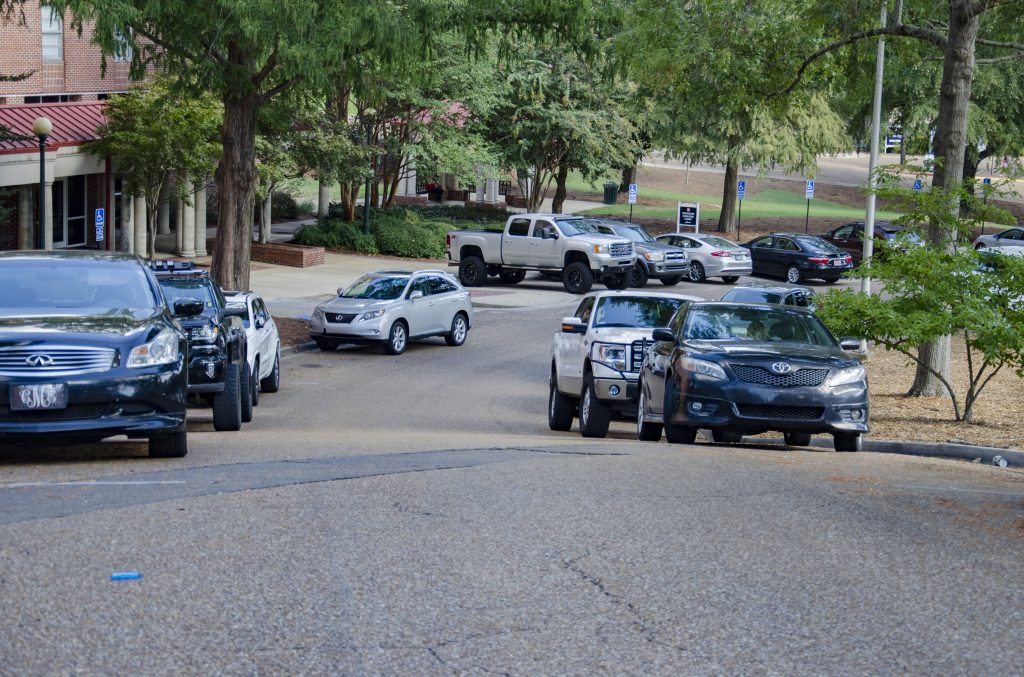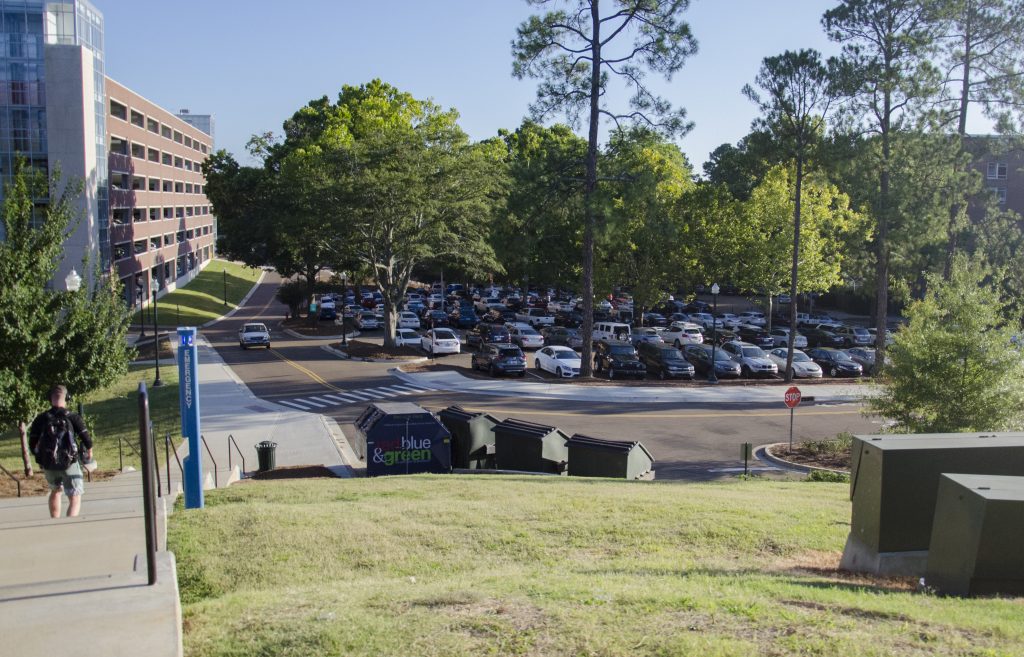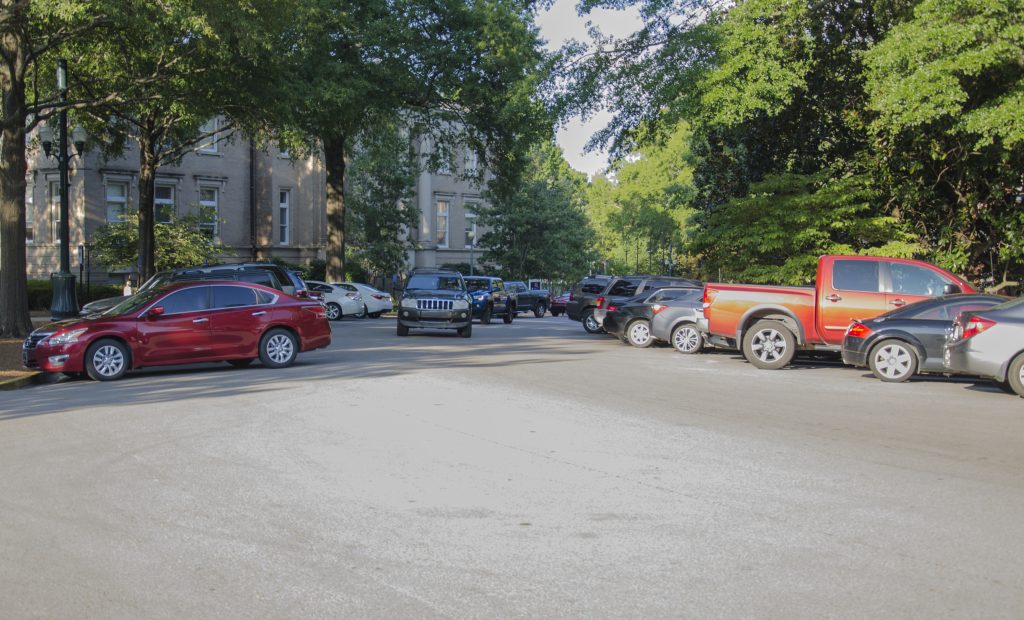West Residential parking permits sold out in five hours this year, and Central Residential permits were gone within a day. Commuter permits followed, selling out in under a month.
In the two weeks since classes began, the Department of Parking and Transportation has received complaints about overselling and lack of available parking spots across campus. Director of the Department of Parking and Transportation Mike Harris said many of these complaints stem from the fact that the parking department sold 2.4 Commuter parking permits per parking space this year

Harris said he wants to get that ratio down to two permits for every space but also that permits currently sell in this manner because a parking space will be used by multiple people in one day.
Harris said the spaces-to-cars ratio is going down year-by-year, as is the number of commuter permits sold yearly.
“By bringing those numbers down, the expectation of finding somewhere to park is getting better and better,” Harris said.
He said peak parking times (when lots will most likely be full) are 9 a.m. to noon, Monday through Thursday.
“But, I would venture to say (that) even when they’re full, there are still plenty of places to park,” he said.
Harris said the Manning Center is an often underutilized parking lot. Residential, Commuter or Faculty/Staff permit holders can park their vehicles there and ride the O.U.T. bus around campus. Harris said the lot has 115 spaces but is mostly never occupied by more than 10 vehicles.
Harris said many parkers become frustrated when they can’t park where they normally would during peak times. He said students should take advantage of less-typical lots like the one at the Manning Center during peak times.

Senior biology major Cellas Hayes said parking on campus remains a problem.
“It’s also inconsiderate that I pay $210 to drive around for 20 minutes to find the furthest parking spot behind the Tad Pad and (that I) had to follow someone to their car and wait on them to leave just to get a spot,” Hayes said.
Harris said that coming to campus during its peak and looking for a spot that’s not there takes up more time than going to an empty lot and getting on a bus. Despite some of these lesser-used lots’ frequent availability, Park-n-Ride permits are one of the least-sold permits.
As of Aug. 27, 2018, less than half of Park-n-Ride permits were sold, leaving 973 permits available. The two parking lots for Park-n-Ride permit holders, the Jackson Avenue Center (JAC) and South Lot, are the least-frequented, leaving more than 500 empty spaces and more than 700 empty spaces daily at South Lot and JAC, respectively, according to Harris.
Any permit-holder is allowed to use the Park-n-Ride lot, but Park-n-Ride permits are restricted to their lots. As the name suggests, drivers park their vehicles and ride the bus to campus, and buses run every 7-10 minutes.
Unlike commuter spots, residential spots are sold on a 1:1 ratio — one permit sold for one parking space. When residential lots are filled, additional parking spaces are sold in the residential garage for the same price, unless a student originally requested a garage space.
Campus Walk, the university-owned, off-campus apartment complex, requires a residential parking permit but has not sold out of permits for its lot. Of the 438 Campus Walk permits, only 241 were sold this year.
Campus Walk resident and senior social work major Mikala Turner said the $325 permits are too expensive.
Many permit prices were higher this year than last. The cost for a Pavilion garage pass increased by $50, for residential lot passes by $25, for Commuter passes by $10 and for Park-n-Ride passes by $5.
For the current fiscal year, parking permits, in addition to meters, citations and special events, are projected to contribute more than 70 percent of the parking department’s nearly $6 million revenue.

Harris said that though some students see permit revenue being put toward bus transportation as a waste, he feels it is necessary. He said without buses, there would need to be more parking spaces and a dramatic increase to permit prices.
“It comes down to how can we keep your permit as cheap as we can and still get the number of students to campus that enroll,” he said. “You’re either going to transport them or you’re going to build parking. It’s a whole lot cheaper to transport.”






